Causes of Dandruff in Men? Understanding the Triggers
Levell Rampono
2 mins read
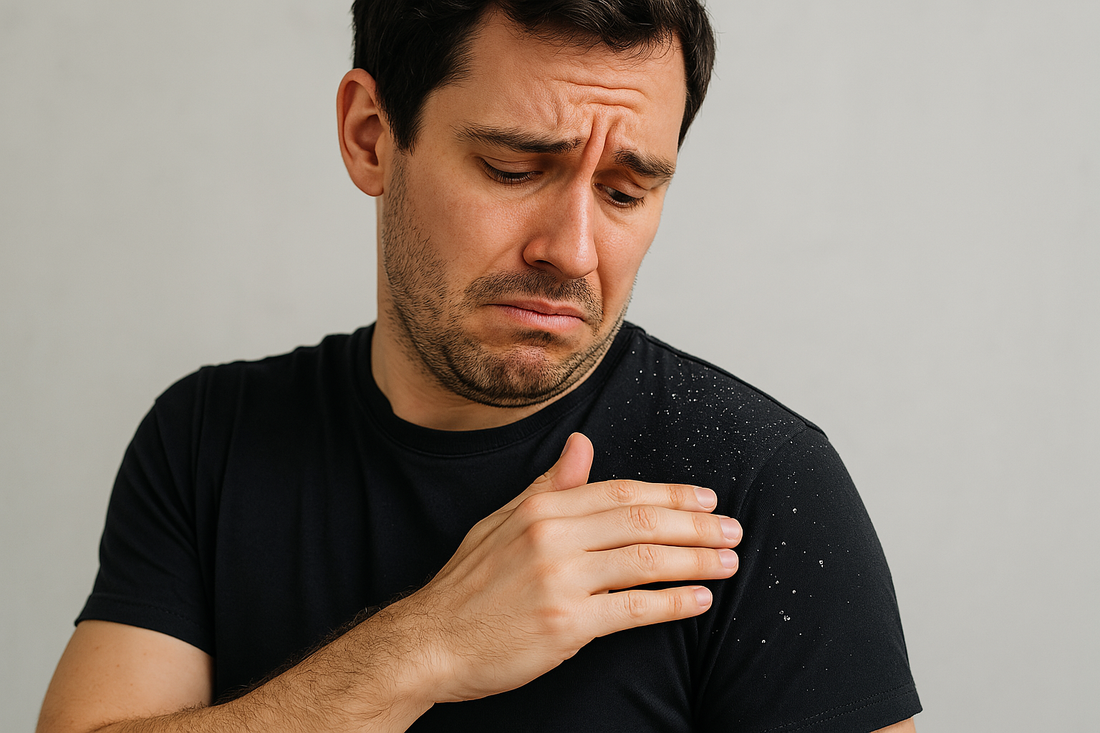
Dandruff is a common scalp condition that affects millions of people worldwide, and it’s no surprise that men are particularly prone to it. Whether you're experiencing flakes in your hair, an itchy scalp, or both, it can be uncomfortable and sometimes embarrassing. But what exactly causes dandruff, and why does it seem to affect men more frequently than women? This blog dives deep into the common triggers of dandruff in men, helping you understand the root causes and providing insights on how to manage this annoying condition.
What Is Dandruff?
Dandruff refers to the shedding of dead skin cells from the scalp, leading to white or yellowish flakes visible in the hair and on clothing. It’s often accompanied by itching and irritation, but it is generally not a serious condition. Around 50% of people experience dandruff at some point in their lives. While dandruff itself is not a medical emergency, the discomfort it causes can affect self-esteem and confidence.
1. Seborrheic Dermatitis
One of the leading causes of dandruff in men is seborrheic dermatitis, a chronic skin condition that affects areas of the body with higher concentrations of sebaceous (oil-producing) glands, such as the scalp, face, and upper chest. Seborrheic dermatitis causes skin cells to grow too quickly, leading to a buildup of dead skin that flakes off.
This condition is closely linked to the overproduction of sebum (skin oil) and a fungus called Malassezia, which feeds on the oils produced by the skin. While Malassezia is naturally present on the scalp, in some individuals, it can multiply and cause an inflammatory response, leading to dandruff.
2. Dry Skin
Dry skin is another common cause of dandruff in men, particularly during colder months or in environments with low humidity. When the scalp becomes excessively dry, it can lead to the shedding of skin flakes. Unlike seborrheic dermatitis, dandruff caused by dry skin typically results in smaller, dry flakes that are less greasy.
In colder seasons, the air contains moisture, causing the skin to become dry and irritated. Harsh shampoos or frequent washing with hot water can also exacerbate dry skin, leading to flakes. If your dandruff is dry, it’s important to moisturize the scalp to restore hydration and minimize the flakes.
3. Oily Scalp
While a dry scalp can cause dandruff, an overly oily scalp can also trigger the condition. Excess sebum production can result in a greasy scalp that promotes the growth of Malassezia, the fungus responsible for seborrheic dermatitis. As the fungus feeds on the oils, the overgrowth of skin cells can lead to flakes.
Men are often more prone to an oily scalp due to hormonal fluctuations, especially during the teenage years when testosterone levels are high. Excess oil production is common during this period, but it can continue into adulthood, contributing to dandruff.
4. Hair Care Products
Certain hair care products, such as shampoos, conditioners, gels, and styling products, may contribute to dandruff in men. Products containing harsh chemicals, sulfates, alcohols, or fragrances can irritate the scalp, causing it to flake. Overusing hair products or using products that are not suited for your hair type can lead to scalp imbalances that contribute to dandruff.
If you notice your dandruff getting worse after using a specific product, consider switching to gentler, sulfate-free, or hypoallergenic alternatives. Our 2in1 Anti-Hair Loss Dandruff Shampoo is specifically designed to target dandruff and excess oil production, offering a gentle yet effective solution to keep your scalp clean, healthy, and flake-free.
5. Poor Diet and Nutrition
A poor diet can also contribute to dandruff. Deficiencies in certain nutrients such as zinc, B vitamins (particularly B6), and omega-3 fatty acids can affect the health of your skin and scalp. These deficiencies can weaken the skin barrier, causing it to flake and peel more easily.
A diet high in processed foods, sugars, and fats can worsen dandruff and other scalp conditions. To combat dandruff, try incorporating foods rich in vitamins, minerals, and healthy fats, such as leafy greens, nuts, seeds, fatty fish (like salmon), and whole grains. Staying hydrated is also key to keeping your skin and scalp healthy.
6. Stress
Stress is another factor that can trigger or worsen dandruff. During periods of high stress, your body produces more of the stress hormone, which can lead to increased oil production on the scalp. This excess oil, combined with the overgrowth of Malassezia, can cause dandruff.
Additionally, stress can negatively affect your immune system and increase inflammation, making your scalp more prone to conditions like seborrheic dermatitis. Managing stress through regular exercise, meditation, or relaxation techniques can help reduce the severity of dandruff.
7. Underlying Health Conditions
Certain health conditions can contribute to dandruff. For example, individuals with conditions like psoriasis, eczema, or fungal infections are at a higher risk of developing dandruff. Psoriasis, in particular, is a skin disorder that leads to rapid skin cell turnover, resulting in thick, silvery scales that can flake off and cause dandruff-like flakes.
Additionally, individuals with weakened immune systems, such as those living with HIV/AIDS or undergoing cancer treatments, may experience more severe dandruff due to the skin’s inability to fight off infection or inflammation.
8. Hormonal Changes
Hormonal fluctuations, especially during the teenage years, and even aging, can affect the sebaceous glands, leading to an increase in sebum production and, ultimately, dandruff. Testosterone, which is present in higher levels in men, plays a role in oil production. This is one reason why men often experience more dandruff than women.
The hormonal changes experienced during the teenage years are often when dandruff first appears in men. However, fluctuations in hormones throughout adulthood can also contribute to the condition.
9. Environmental Factors
Environmental factors like pollution, exposure to harsh chemicals, and extreme weather conditions can contribute to dandruff. In polluted urban areas, dust and dirt can accumulate on the scalp, leading to clogged pores and an imbalance in the scalp’s natural oils. Similarly, extreme weather conditions such as wind, cold, and heat can irritate the scalp, causing dryness or an increase in oil production.
Wearing hats or head coverings that trap sweat and oil can also create an ideal environment for dandruff to flourish. It’s important to keep your scalp clean and well-cared-for in such conditions.
Dandruff can be a persistent challenge, but understanding the triggers, whether it’s hormonal changes, diet, or environmental factors, is crucial for effective management. By adopting a proper hair care routine and addressing the root causes of your dandruff, you can enjoy healthier, flake-free hair. At Levwr, we offer a range of grooming products designed to help you tackle dandruff and maintain a confident, healthy scalp. Take proactive steps today for the long-term health of your hair and scalp.
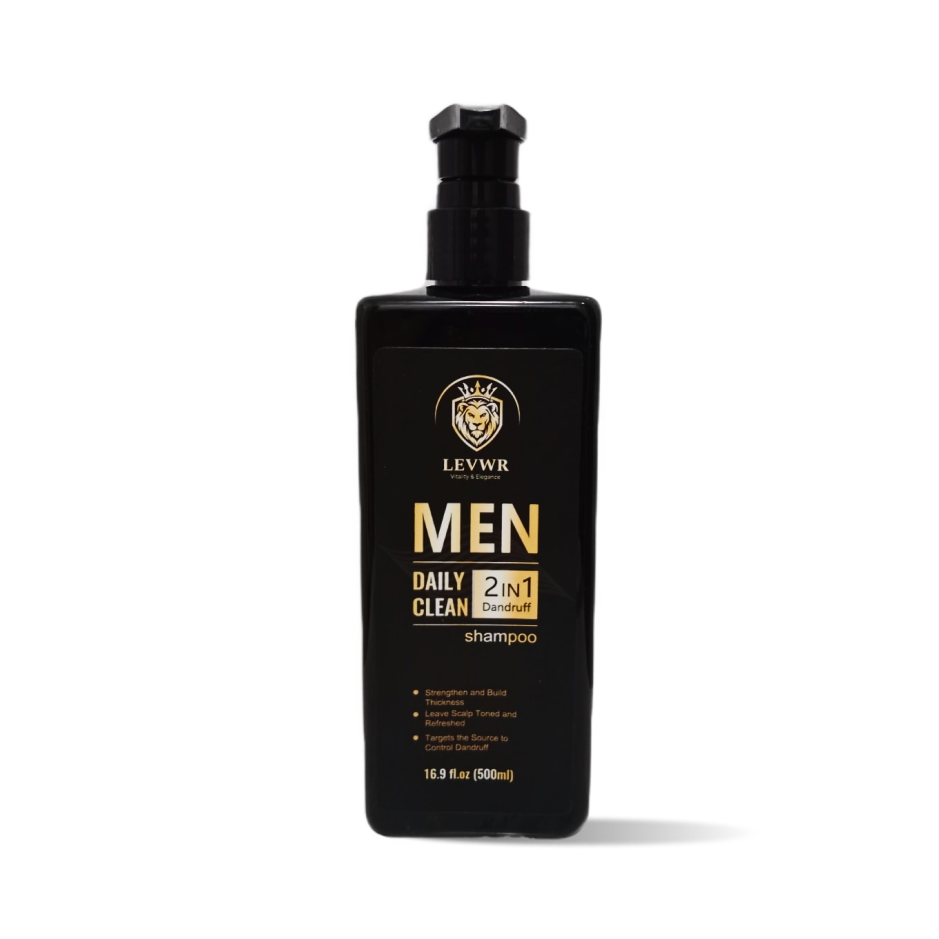
2in1 Anti-Hair Loss Dandruff Shampoo
$33.27
Our 2-in-1 Scalp Care Anti-Hair Loss Dandruff Shampoo is a game changer for your hair and scalp! It gently cleanses and nourishes, eliminating dandruff while strengthening hair from the roots.
-
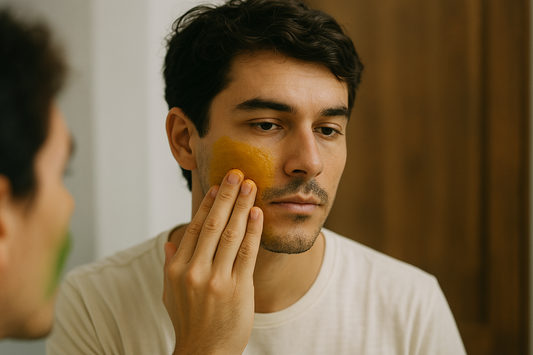
The Power of Nature: Top Skincare Natural Ingre...
When it comes to skincare, everyone wants healthier, glowing skin, and that often means trying different products and ingredients. In recent years, natural skincare has become more popular because it...
The Power of Nature: Top Skincare Natural Ingre...
When it comes to skincare, everyone wants healthier, glowing skin, and that often means trying different products and ingredients. In...
Read More
-
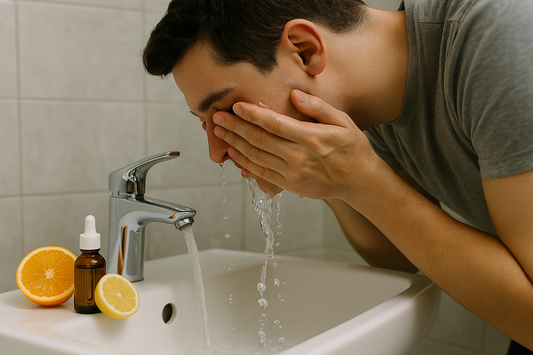
Vitamin C in Skincare: Myths vs. Facts
Vitamin C has long been recognized as one of the most powerful ingredients in skincare. From brightening dull complexions to fighting signs of aging, it seems to do it all....
Vitamin C in Skincare: Myths vs. Facts
Vitamin C has long been recognized as one of the most powerful ingredients in skincare. From brightening dull complexions to...
Read More
-
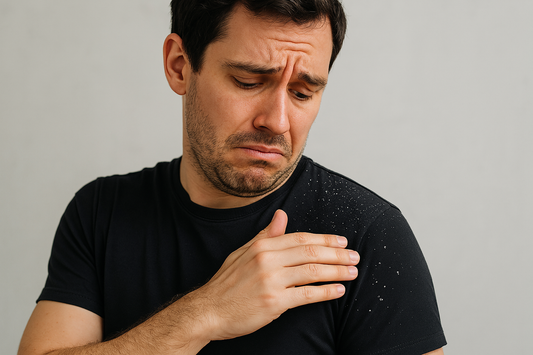
Causes of Dandruff in Men? Understanding the Tr...
Dandruff is a common scalp condition that affects millions of people worldwide, and it’s no surprise that men are particularly prone to it. Whether you're experiencing flakes in your hair,...
Causes of Dandruff in Men? Understanding the Tr...
Dandruff is a common scalp condition that affects millions of people worldwide, and it’s no surprise that men are particularly...
Read More
- Choosing a selection results in a full page refresh.
- Opens in a new window.


